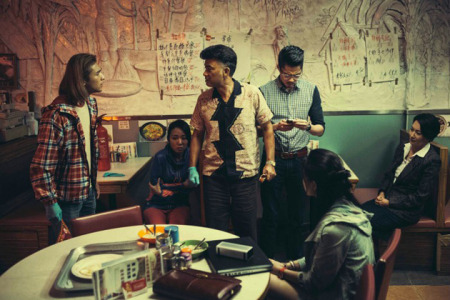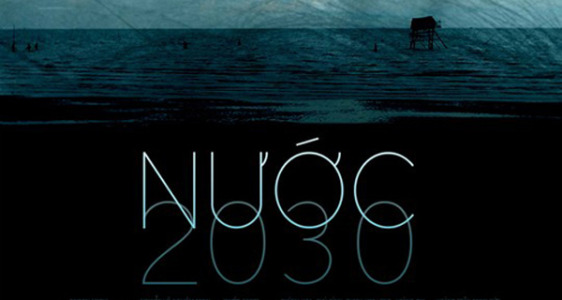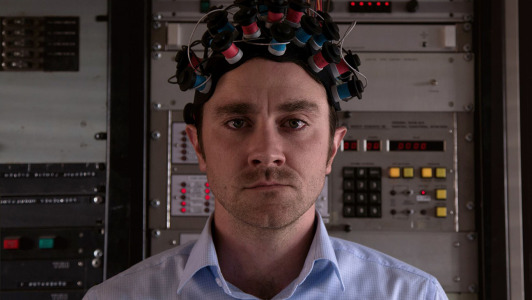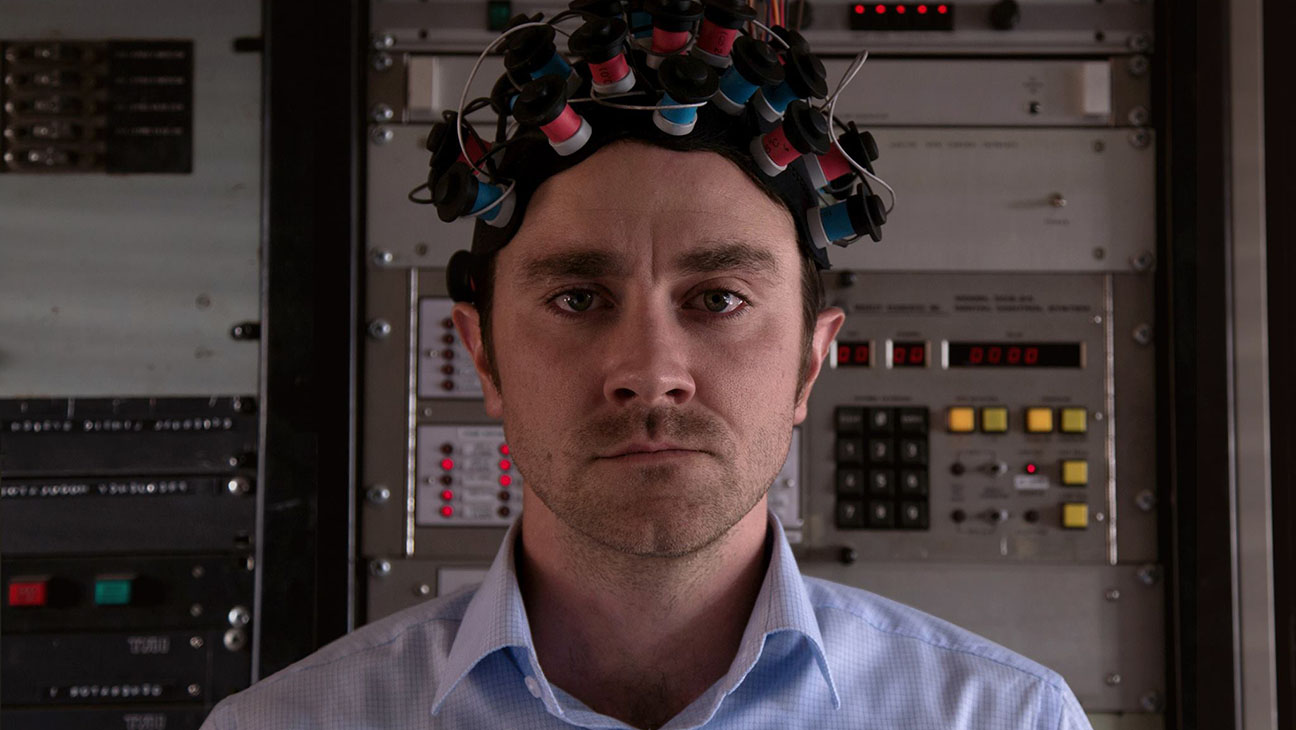Note: This capsule review is part of my coverage on the Vancouver International Film Festival. For more information, you can visit http://www.viff.org/
The Vancouver International Film Festival (VIFF), is one of the biggest festivals in North America. I had the privilege to attend for the first time as a critic from September 25 – October 10. And while it was amazing to experience great film after great film, there weren’t many genre films, and barely any science fiction. It’s not only disappointing because it’s a genre I love, but because there’s such a missed opportunity for innovative filmmaking and taking risks that often isn’t seen in Hollywood. These are three films which dove into the strange, the surreal, and the futuristic, for better or for worse.
The Midnight After
Dir. Fruit Chan
A nightmarish, off the hook crazy film about a bus full of passengers who suddenly notice that they are the only people present in Hong Kong. Everyone else suddenly disappeared. Stuck in a small town after the bus breaks down, a series of strange events rapidly escalate as some of them get sick and dissolve into ash, others become zombified, strange men in gas masks watch from the shadows, and a morse code cry for help is sent to each of the 17 passengers’ cell phones. There’s a million more oddities beneath the surface, manifesting themselves sometimes only for a scene or two, in which they seem like all important plot points, only to never to seen again. This is a film that doesn’t care about continuity, or resolution, it just wants to jam as much as it can into its two hour running time.
It’s the definition of a muddled mess. it’s as if plot lines, characters, politics, and genres are all thrown in a blender, but the blending is stopped before it’s complete, resulting in an uncohesive jumble of parts that could have made a good movie, but it’s almost as if making a good movie isn’t the point. The point is its own zaniness: at one point there’s a karaoke music video for David Bowie’s “Space Oddity,” at one point it’s the zombie apocalypse, at others its a conspiracy theory film, at others it resembles Lost at its worst. The relief in watching a movie this creative though, is that notwithstanding its mediocrity, it never ceases to be entertaining. I could see it becoming a cult classic, as its one of those movies you can watch to not only laugh at the absurdities in the film, but the absurdity that a film like this exists.
Nuoc 2030
Dir. Minh Nguyen-Vo
A near future look at Vietnam, where sea levels have risen to the point where 80% of Vietnam’s arable land is submerged, leaving small communities of isolated survivors living on stilted huts on the ocean, struggling to survive and refusing to leave their homes. While certainly an arresting premise, it’s not unique, bringing to mind any other post-apocalyptic landscape – while superficially more related to Waterworld, its’ brand of supposed realism brings it closer to The Children of Men.
One of the most interesting aspects of the film is that it doesn’t take the easy story; this isn’t an epic, fight for the survival of humanity kind of film. It’s a sci-fi film not interested in spectacle, and it shows us a world where life continues even after disaster has struck – there are still cities, people still get married, life goes on. It ends up as a thoughtful film that’s a welcome reprieve from Hollywood’s understanding of sci-fi as anything to do with spaceships and explosions. Unfortunately, it fails to fully integrate its various plot threads to make a solid film. Instead, it flounders, flip flopping between a political thriller and a love triangle, which intersect awkwardly through a poorly thought out 3 act structure and unnecessary flashbacks.
Composed with a keen eye for detail and rigorous worldbuilding, the cinematography is clean and smooth, including a wondrous fisheye lens shot which seems to form a globe of water, working in perfect symmetry with the film’s theme and form. Still, it’s not quite beautiful enough to make up for a haphazard plot and a intensely dissatisfying conclusion to a mystery introduced near the beginning of the film.
 The Infinite Man
The Infinite Man
Dir. Hugh Sullivan
Time travel movies, while often hit and miss, are almost always worthwhile endeavors because of their premises and techniques. The exploration of time is a perfect jumping off point for the medium of cinema, and even if most films aren’t quite ambitious enough to use their premise as such, it lurks beneath most of such films. Shane Carruth’s Primer set the bar for mind bending, physics heavy time travel films, Rian Johnson’s Looper was an admirable thriller, and Richard Curtis’ heartwarming time travel romcom About Time (which managed to avoid the sin of over-sentimentality)set the stage for how one can use the premise to explore relationships and the philosophical foundations that undergird our lives.
The Infinite Man bears the most in common with the last film, About Time, given that this is also a romcom of sorts. Dean (Josh McConville) is a neurotic engineer who is madly in love with his girlfriend Lana (Hannah Marshall), and for their anniversary he decides to recreate – exactly – their most perfect date. It inevitably all goes wrong when Lana’s old boyfriend, Terry (Alex Dimitriades) follows them to their motel (which is now a dilapidated, ghost town), gets in a tussle with Dean, and Dean loses consciousness, only to wake up with them both gone. So he does what any sane, reasonable man would do, create a time machine and give it another try. But things begin to get complicated when multiple versions of Dean are running around pursuing Lana at the same point in time, and we’re never quite sure who is who. It’s quite clever in how it replays old scenes from different perspectives, and even though it makes a few continuity errors, the film’s internal logic is surprisingly sound.
It’s an independent film that is truly indie – shoestring budget, only three actors, and primarily one location for the duration of the film. It relies on the cleverness of its script and the actors to carry the film beyond another generic romantic comedy and instead make something equal parts fun, sad, and profound. While that last attribute may be stretching it a wee bit, The Infinite Man certainly tries its best to elevate its concept by taking the time to care about its characters and why they react the way they do. Are we different people at different points in time? Can we be jealous of our future selves? Can we manipulate love to fit who we are, or must we change to fit it? These are just some of the questions it asks, all the while serving up a little film that functions just as well as a fun bit of escapism or a more serious reflection of ourselves.

